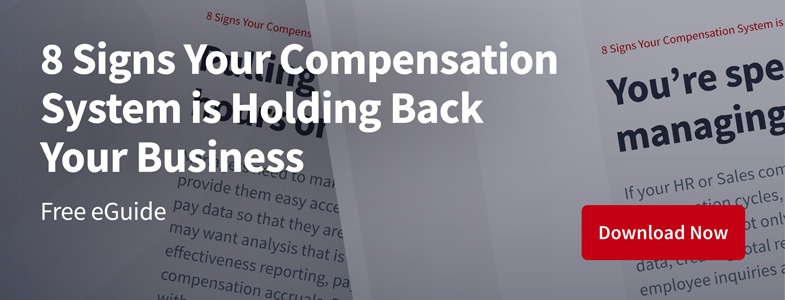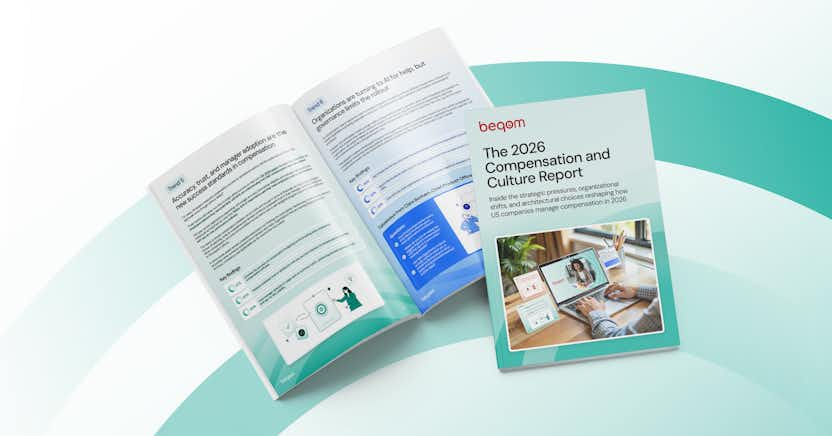SOX in the UK – What Does It Mean for Compensation?

Learn more about the following beqom products
Calls for financial transparency and oversight in the UK have been growing over the past decade, bolstered by some high-profile business failures, including BHS, Carillion, Patisserie Valerie, and Thomas Cook.
The UK government now wants to introduce reforms, similar to the Sarbanes-Oxley (SOX) regulations in the US, to modernise and strengthen the audit, corporate reporting, and governance framework for major companies.
Any good governance framework surely must include compensation, which is both a major expense and a motivator of behaviour. So, what will a UK version of SOX require of compensation management?
The aim of SOX-like controls is to establish clear responsibilities, accountability, and transparency in order to detect and prevent fraud and improve company reporting on the key issues of risks, assurance, and internal controls. Auditing is key to assuring investors and others that company reports are both accurate and meaningful.
Is there an upside to SOX compliance?
According to a recent article in CPO Magazine, the arrival of SOX can be a blessing as well as a burden. Author Yang Zheng states, “... the implementation of UK SOX is not without its benefits. Not only would the legislation provide us with a more detailed and controlled compliance environment, it would also improve documentation, increase audit committee involvement, standardise processes and reduce complexity.”
The experience of some beqom customers would bear that out. One US bank that implemented beqom to mitigate SOX risks reported increased efficiency and reduced errors by eliminating 400+ spreadsheets. The solution was found to boost employee engagement, improve manager and HR experiences, and give the CFO a real-time view of budget versus spend. Similarly, a global beverage company integrated beqom into its worldwide technology platform to automate variable pay calculations and track key performance metrics for each program, increasing compensation effectiveness while improving governance and compliance over variable pay.
“Those benefits will only be achieved,” says Zheng, “by taking a proactive approach to risk and compliance, using the run-up to legislation to understand how we can simplify different regulatory needs alongside the amount of testing and evidence collection that will be needed.
“Technology can also help … by automating tasks and providing ongoing monitoring across an entire organisation. This will, in turn, save you time and money, allowing you to reallocate your resources to achieve other business benefits.”
How does a compensation management system help with SOX compliance?
US companies responded to SOX in part by putting in place systems that provide control and transparency, and one key way to achieve this is through the introduction of compensation management technology. What role can a compensation management system play in SOX compliance and overall good governance?
Single source of truth
A key advantage of any centralised system is that it creates a single source of truth by establishing a common data repository and centrally controlled processes. This ensures that all stakeholders are looking at the same data, improving communication, reducing errors, and supporting audits.
Controlled compensation processes
A flexible enterprise-grade software solution can provide internal process controls during compensation reviews, lowering the risk of non-compliance with SOX. A sophisticated compensation tool can automate processes and provide built-in rules, warnings, checks, and audit trails to mitigate fraudulent activities and human errors that undermine the reliability of financial reporting and investor confidence in the results.
Automated and auditable processes
Many companies are still managing their compensation processes through manual spreadsheets and e-mails. Such a process does not lend itself to SOX compliance, as details on compensation decisions are not recorded. The lack of an appropriate audit trail or security poses a red flag to auditors. A compensation system can mitigate SOX and audit risk of “End User Computing” by replacing key processes performed in Excel or MS Access DBs with a more scalable, collaborative, and controlled solution.
Accurate payments
Variable incentive payments are prone to error when calculated on spreadsheets. Gartner has estimated that sales organisations save 3-5% in compensation costs by using a sales performance management system to reduce overpayments. A rules-driven central compensation system can virtually eliminate such errors.
Accurate revenue reporting
Using a compensation management tool provides appropriate tracking and accounting of revenue transactions, which are critical to the accuracy and accountability of the bottom line.
Clearly communicated goals
Well-documented and communicated sales performance and/or variable incentive plans are key to good corporate governance, as they facilitate the alignment of compensation to company goals that meet the needs of shareholders.
Engagement and productivity
Managing incentives correctly and providing employees with full transparency into their total compensation boosts employee engagement, in turn driving productivity and revenues and reducing employee attrition, all desired outcomes of good governance.
Compliance reporting
A compensation system can provide easily accessible audit reports and satisfy SOX requirements of periodic access reviews, configuration change reviews, etc.
When should companies start to prepare?
While the timing of SOX regulations in the UK is not firmly established, the government has published its consultation on the topic and the response period has passed as of July 2021. According to PwC, “Based on the time to legislate, December 2024 is likely to be the earliest date of attestation. Given that an implementation programme can take 18-24 months for a mature UK filer, starting early is critical. We recommend a dry run year, in the year preceding the first year of adoption.”
So, it seems prudent for companies without automated compensation platforms to start planning their transition to a specialised compensation tool in 2022, to give them enough time to transform all their compensation processes and to have an opportunity to run through at least one review cycle.
If regulatory compliance is not enough of a selling point to make the move to a digital rewards platform, consider that the same things that complicate compliance may be holding your business back as well. Check out our free eGuide, 8 Signs Your Compensation System is Holding Your Business Back.








